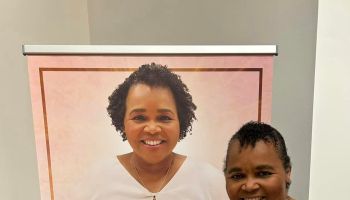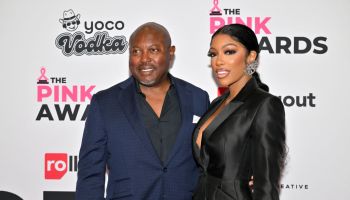Recently, the planned adoption of two Black children by a White couple in Texas sparked a debate over whether White families should adopt Black children.
Scott Mullen and his wife Lou Ann, of Lexington, TX, recently signed an adoptive placement agreement that gives them custody of 2-year-old Matthew and his 6-year-old brother, Joseph.
If all goes well during the Mullens’ supervision period, the Texas Department of Protective and Regulatory Services will take the case to court within the next 6 months and request that the adoption be finalized.
Prior to signing the adoptive agreement, the Mullens believed they would not be able to adopt the children because of their race. After filing a lawsuit against the agency, the Mullens learned they had been approved to start the adoption proceedings.
Despite Lou Ann Mullen’s insistence that she will provide the boys with love as well as a cultural identity, some leaders familiar with the issue doubt that this can be done properly by a family that is not Black.
David McBride, who heads the department of African American Studies at Penn State University in University Park, PA, believes Black children should be placed with Black families.
“I think in general the Black social worker community is opposed to transracial adoption when it comes to African-American children, and I support that,” McBride said.
He emphasized, “There is a need for these kids to be placed in households where they will flourish and gain a healthy identity. They often don’t get that in White households.”
Black children reared in White families most likely will not be exposed to Black culture, McBride said, because “everything is so segregated in terms of housing and education. As much as the White parents may love the child, the reality is, we live in a racially polarized society.”
The 20-year study by AU professor Rita J. Simon found that 67% of transracial adoptees said they would not have preferred to have been adopted by parents of the same racial background as themselves.
“Moving the thousands of minority children available for adoption out of institutions and temporary foster care into permanent homes without regard to race serves the best interests of the child,” Simon affirms.
Lou Ann says, “We will teach them about Martin Luther King Jr., because he is an important person. We will teach them about their heritage, about racism and about the fact that there are ignorant people out there.”
She maintains that because she and her husband have a number of Black friends, attend a non-denominational church that is Black, and live in the tiny multi-racial community of Lexington, Matthew and Joseph often interact with people of their race.
Dr. Robert B. Hill, director of The Institute for Urban Research at Morgan State University in Baltimore, said he wouldn’t mind White families adopting Black children if there were no Black families available. Media reports, he pointed out, give the impression that Black families are not available or not interested in adopting.
In 1980, when Hill was director of research for the National Urban League, he conducted a national survey of Black families which asked how interested they were in adopting a Black child. Hill said 1 out of 3 of the families, or 3 million of them, said they were interested in adopting.
The survey, which is still relevant, if not more relevant today, revealed that 100 Black families are available for every one child who wants to be adopted, Hill stated. “The fact is, we’ve been led to believe there are an insufficient number of Black families to adopt our children, and the data just doesn’t show that.”
Lou Ann Mullen insists love is colorblind. In responding to critics who say the children should be with a Black family, Lou Ann says: “That’s their opinion and I respect that. I am religious. All my knowledge and wisdom come from the Bible.” She concluded, “I know it’s going to be a challenge. But I’m honored to face it.”
















